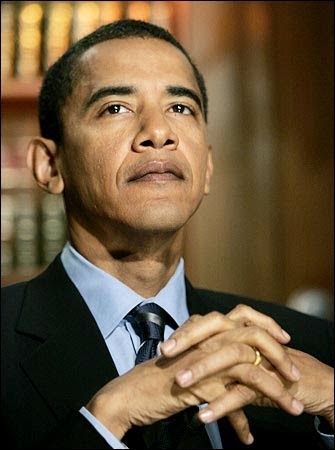Article by Jonah Goldberg on the damage Barak Obama has done to the United States internationally:
This gets us to the
heart of the damage Barack Obama has done. A superpower can cruise on perception
for a very long time. Perception is relatively inexpensive. Sure, you gotta
float some ships around. Yeah, you might have to run some military exercises.
But as long as people think you're sustaining a Pax Americana you are, in fact,
sustaining a Pax Americana. But once you let that perception waver, you're
suddenly faced with a terrible set of choices. You can't tell the world
you're still in charge, you have to show them. If you just talk about
red lines and then do nothing to enforce them, further talk becomes worse than
useless, it becomes provocative. If you opt to demonstrate your power,
you risk failing and confirming weakness. You also risk a horrible escalation as
the bad actors respond not with surrender but with even more testing. Does
anyone think Putin would be the first to blink at this point if Obama sent
troops to Ukraine?
Obama could do
everything right starting today (Stop laughing!) and in a sense it would still
be too late. It's always more expensive to put down a riot than to prevent it.
And it's not entirely clear to me that the American people are willing to pay
that price right now. It's much clearer that this president has no interest in
asking them to.
Everyone mocked
George W. Bush for his "I'm the decider" shtick. I never particularly
liked the locution myself. But it did get to the truth of the matter. The
president has to make decisions. These days, even Dianne Feinstein is willing to
admit that this president has problems making decisions. That's all fine and
good. But one thing bothers me. A lot of people don't seem to realize that not
making a decision is, itself, a kind of decision. President Obama's passive
aggression (for want of a better term) has never gotten the attention it
deserves. This is, after all, the guy who voted present whenever he could in the
Illinois state legislature — not exactly the
most high-stakes arena in the world. He's been voting present on a global scale
ever since. As John Fund wrote almost
exactly a year ago:
I tried to make this point on Fox News yesterday. Everyone's talking about what the president should say. The assumption is that saying something will reflect a policy of doing something. But that isn't how Obama sees the situation. He wants to say something that will take the pressure off of him to do something. This has always been his M.O. When the IRS scandal looks really bad, he says it's a big problem and an outrage. That takes the pressure off the White House and frees him up from having to do or say any more about it. Now he dismisses the whole thing as a "phony scandal." Obama didn't lay out those "red lines" for Syria because he really meant it. He warned of red lines because doing so liberated him from having to act. When Assad called Obama's bluff he folded. Obama didn't order the surge in Afghanistan to win, he ordered the surge in Afghanistan to free himself from the hassle of having to talk — or think — about Afghanistan.
Since then, further evidence has piled up that Obama is a dithering, indecisive leader willing to deflect making a decision because of what many see as political calculation. It's one thing when this happens domestically, like when his administration delayed meaningful action by BP and the state of Louisiana to clear up the Gulf of Mexico oilspill in 2010. It's another when it happens in foreign policy — especially in the Middle East. Obama stood aloof during the Iranian street protests of 2009. In Libya, he delayed a decision for weeks until choosing "to lead from behind," in the famous words of one adviser. In Egypt, the administration was caught flat-footed not once, but twice, by uprisings.
Will someone please
provide some examples of where Obama has outthought America's adversaries? The
man cowers behind his desk and his fans hang a sign reading "Genius at
Work."


